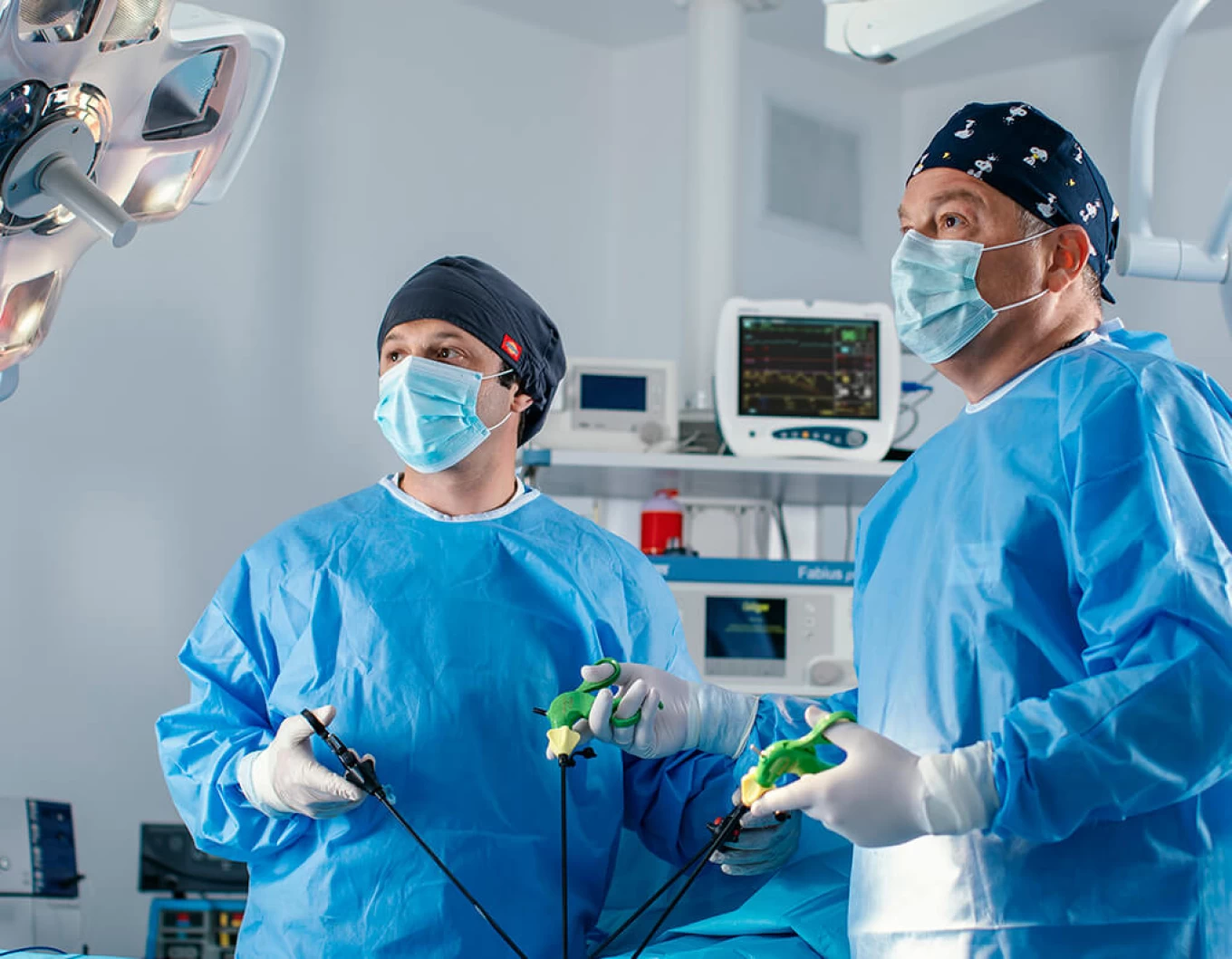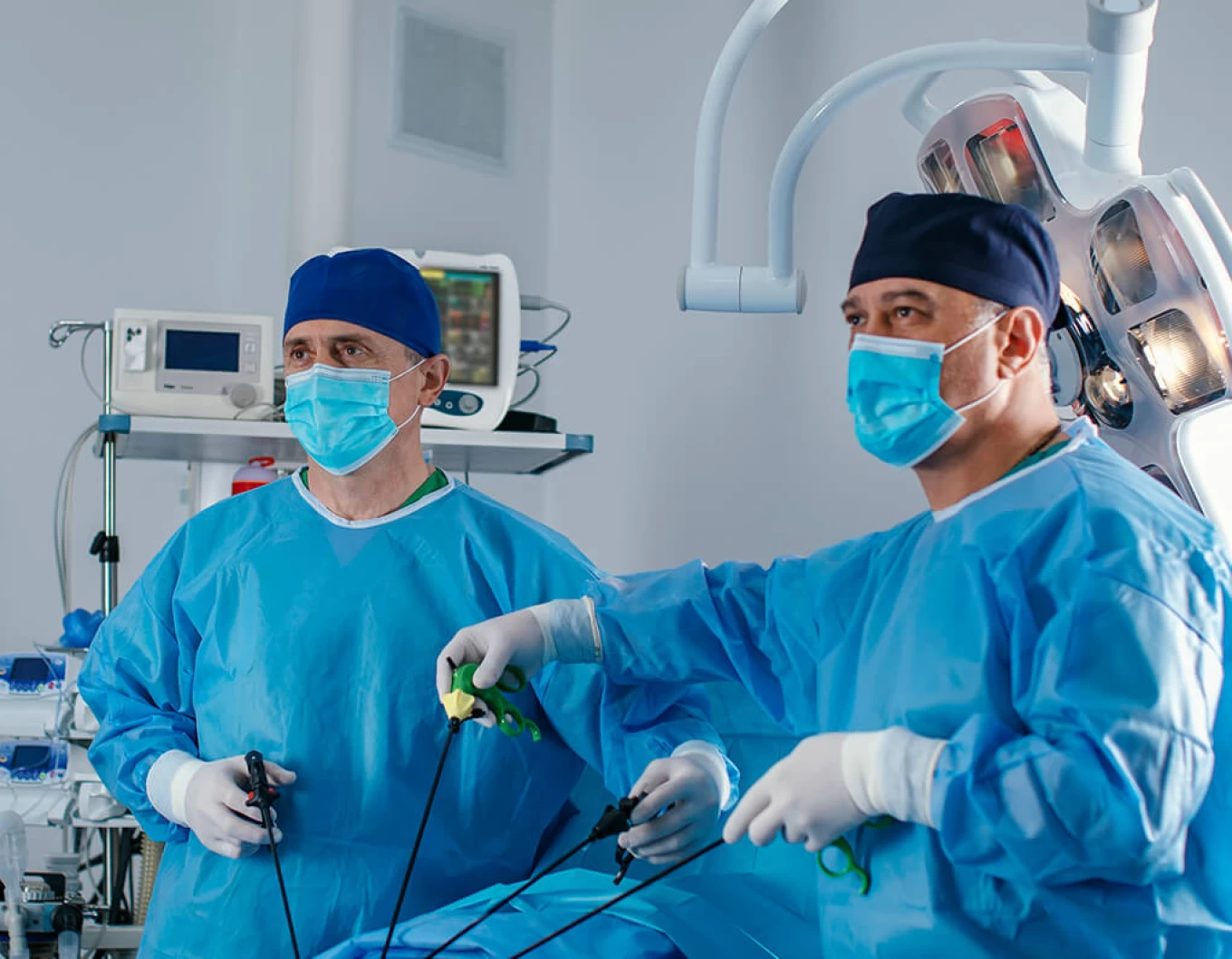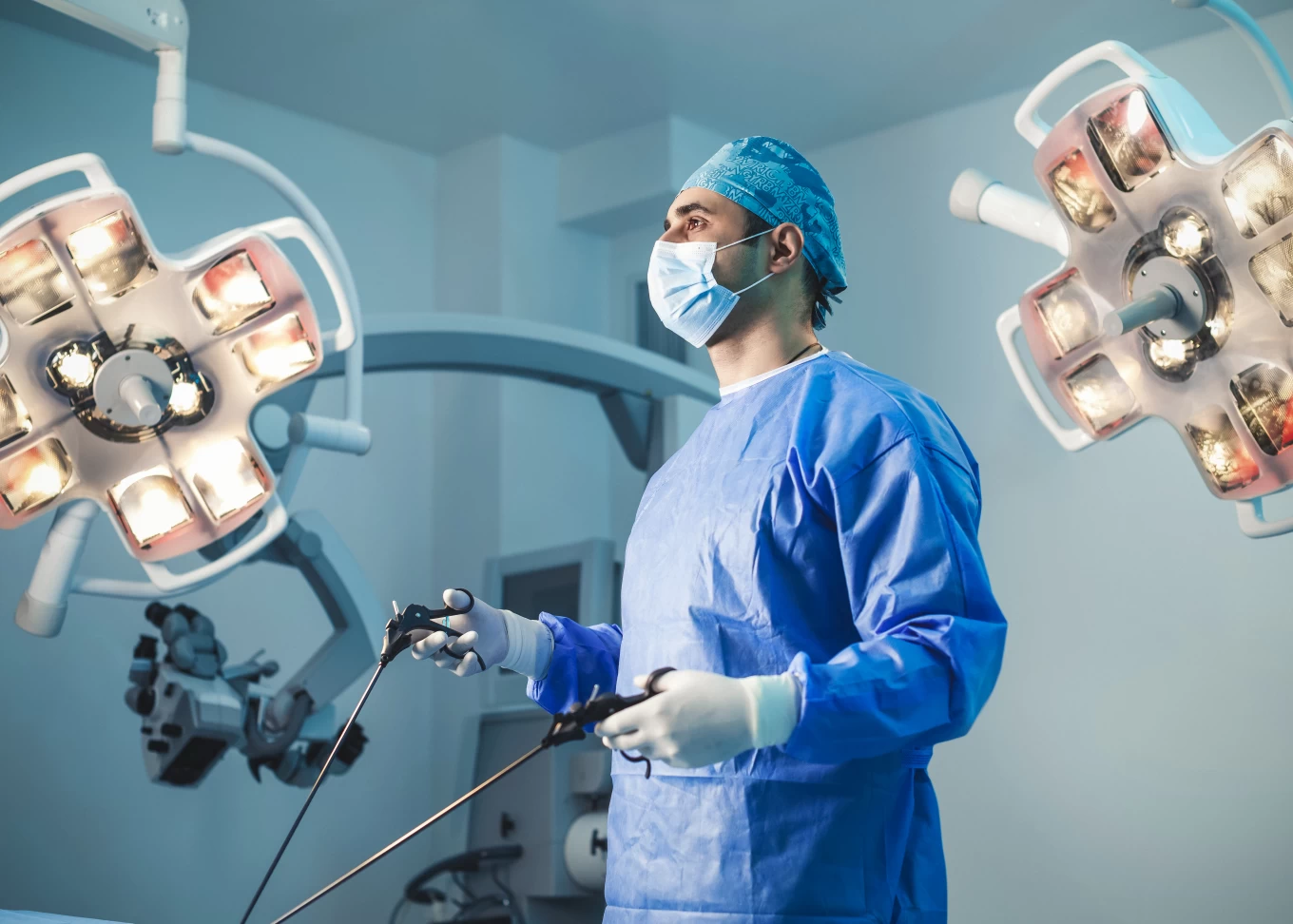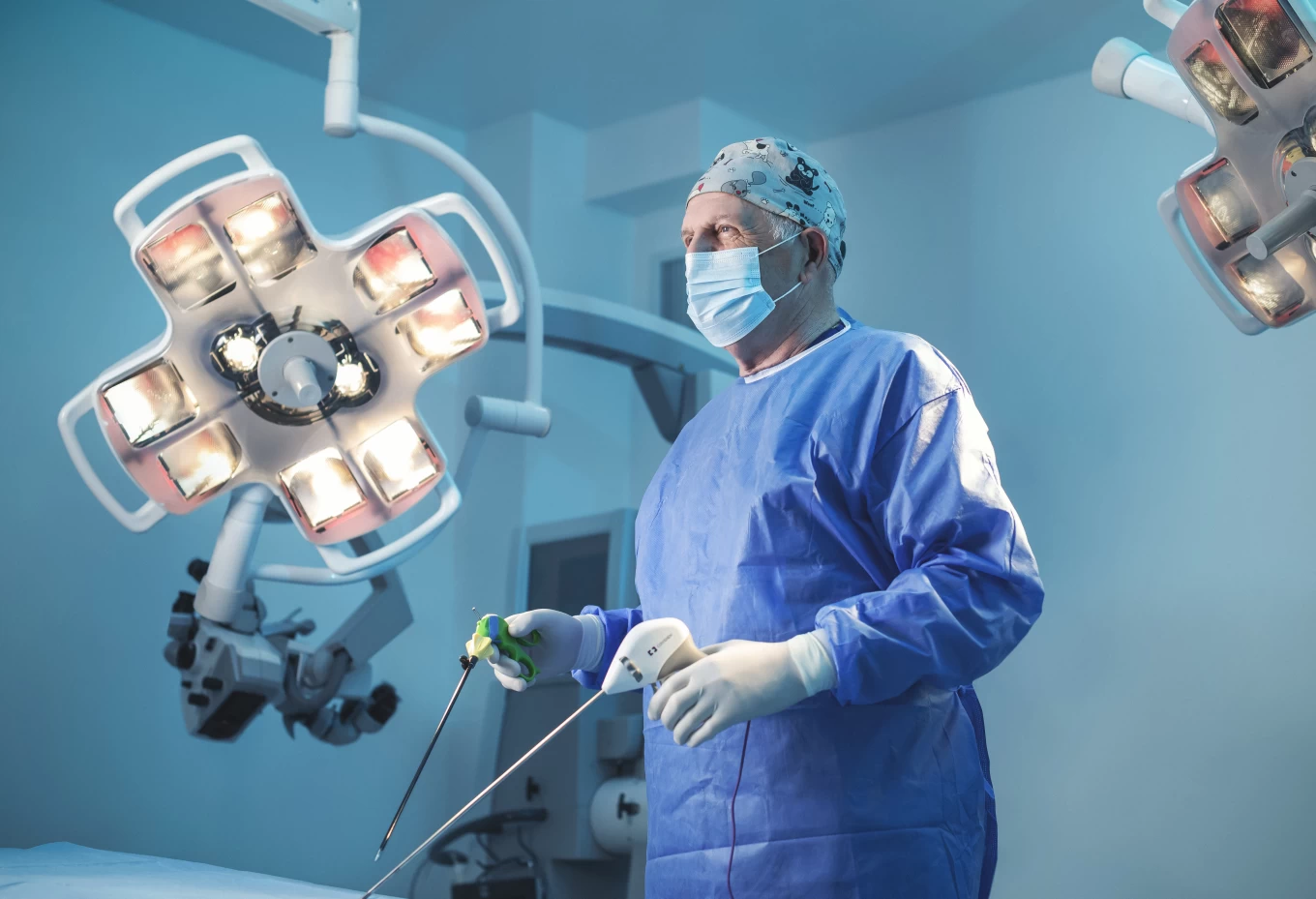Department of Abdominal Surgery
Head of Abdominal Oncological Surgery: Lasha Turkiashvili
Abdominal surgery is a medical field responsible for the treatment of diseases in the abdominal cavity. Typically, these procedures are performed for a variety of reasons, as the field includes diseases related to the stomach, liver, pancreas, spleen, gallbladder, kidneys, large and small intestines, reproductive organs, and other complications.
The department is equipped with modern surgical instruments and equipment: the latest generation STORZ endolaparoscopic set for surgical interventions, the 'HARMONIC' ultrasonic scalpel, the ERBE APC 300 plasma surgical device, the RITA monopolar radiofrequency ablation device, and intraoperative radiological and ultrasound equipment (SIEMENS).
Abdominal surgery serves several important purposes. First and foremost, the goal of the intervention is to provide a comprehensive solution and treatment for various diseases. Abdominal surgical procedures may also be performed for preventive purposes, such as removing problematic areas or repairing damaged tissues, which will reduce risk factors for future diseases. Some diseases are chronic in nature and cannot be cured. In such cases, abdominal surgery is used to alleviate accompanying symptoms and improve the quality of life. In certain cases, it may even have a diagnostic purpose, which involves studying symptoms and determining the severity of the condition.
Abdominal surgery at Todua Clinic includes:
- Surgical treatment of abdominal cavity organ diseases
- Reconstruction of sleep arteries
- Surgical treatment of thyroid diseases
- Reconstructive surgery for esophageal neoplasms and diaphragmatic hernia of the esophagus
- Liver resection, splenectomy, adrenalectomy, cholecystectomy, appendectomy, hernia repair
- Radical, organ-preserving, and reconstructive-oncological surgeries
- Treatment of lower limb varicose veins using endoscopic methods
- Colectomy, gastrectomy, and hemicolectomy
- Esophageal, gastrointestinal tract surgeries (stomach, small and large intestines, rectum), liver, pancreas, retroperitoneal space tumors, benign and malignant pelvic pathology
- Pancreatoduodenal resection
- Bariatric surgical interventions using laparoscopic methods
Abdominal surgery is used to address a wide range of health problems that affect the organs of the abdominal cavity. For example, this may include appendicitis. Inflammation of the appendix is one of the most common complications requiring an appendectomy. Additionally, abdominal surgery is performed for conditions such as gallbladder disease, kidney issues, oncology, and other disorders. Since abdominal surgery covers a broad spectrum of conditions, it is a highly significant medical specialty.
Abdominal surgery is divided into two main approaches: open and laparoscopic surgeries. Open surgery is a traditional method that has been used for many years and involves making a large incision at the necessary site. The advantage of this approach is that it provides a clear view and easy access to the organs. However, it should be noted that due to the size of the incision, the rehabilitation process can be lengthy and sometimes associated with discomfort.
As for the laparoscopic method, it involves minimal invasion. This means that the surgery is performed using a special instrument called a laparoscope. The laparoscope is a long, thin, tube-like device equipped with a high-definition camera that ensures visibility of the organs. The laparoscope passes through a small incision in the skin, and the surgical intervention is guided by the image displayed on a screen.
Surgeries performed using the laparoscopic method are less traumatic for the patient, which makes the postoperative period easier to manage and less painful. The length of stay in the hospital is short, and the patient returns to their normal routine in a relatively short time.
Todua Clinic's surgeons perform abdominal surgical procedures with the highest level of professionalism. The use of the latest techniques and the integration of modern technologies into the process provide high guarantees for the patient's full recovery.





